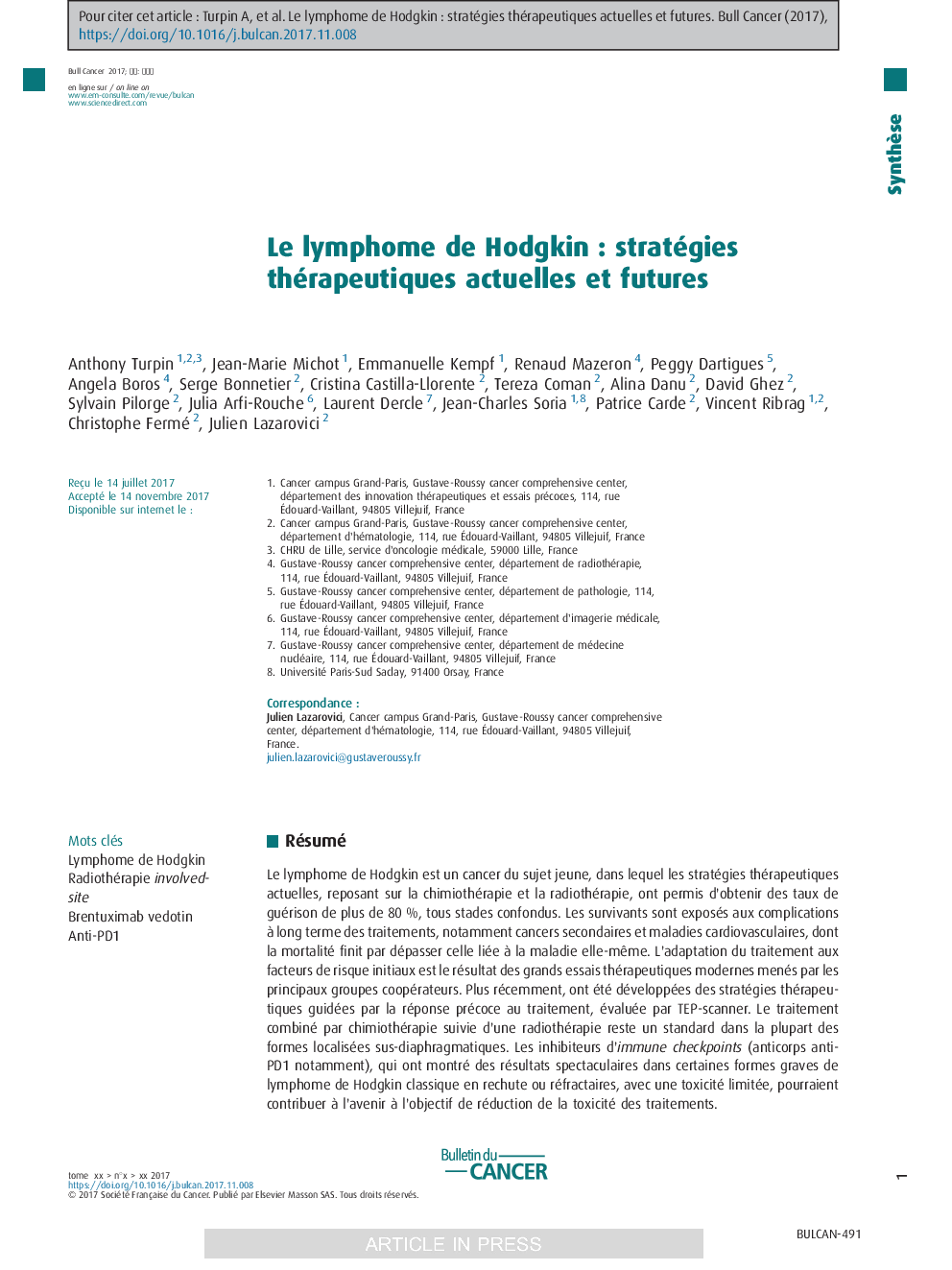| Article ID | Journal | Published Year | Pages | File Type |
|---|---|---|---|---|
| 8785621 | Bulletin du Cancer | 2018 | 18 Pages |
Abstract
Hodgkin lymphoma (HL) is a cancer that mostly affects young people, in which modern therapeutic strategies using chemotherapy and radiotherapy result in a cure rate exceeding 80%. Survivors are exposed to long-term consequences of treatments, such as secondary malignancies and cardiovascular diseases, whose mortality exceeds the one of the disease itself, with long-term follow-up. The current therapeutic strategy in HL, based on the assessment of initial risk factors, is the result of large clinical trials led by the main international cooperating groups. More recently, several groups have tried to develop treatment strategies adapted to the response to chemotherapy, evaluated by interim PET/CT scan. However to date, the combined treatment with chemotherapy followed by radiation therapy remains a standard in most of the above-diaphragmatic localized forms. Immune checkpoint inhibitors, and especially anti-PD1 antibodies, have shown dramatic results in some serious forms of relapsed or refractory HL, with limited toxicity, and may contribute in the future to reduce the toxicities of treatments.
Related Topics
Health Sciences
Medicine and Dentistry
Oncology
Authors
Anthony Turpin, Jean-Marie Michot, Emmanuelle Kempf, Renaud Mazeron, Peggy Dartigues, Marie Terroir, Angela Boros, Serge Bonnetier, Cristina Castilla-Llorente, Tereza Coman, Alina Danu, David Ghez, Sylvain Pilorge, Julia Arfi-Rouche, Laurent Dercle,
